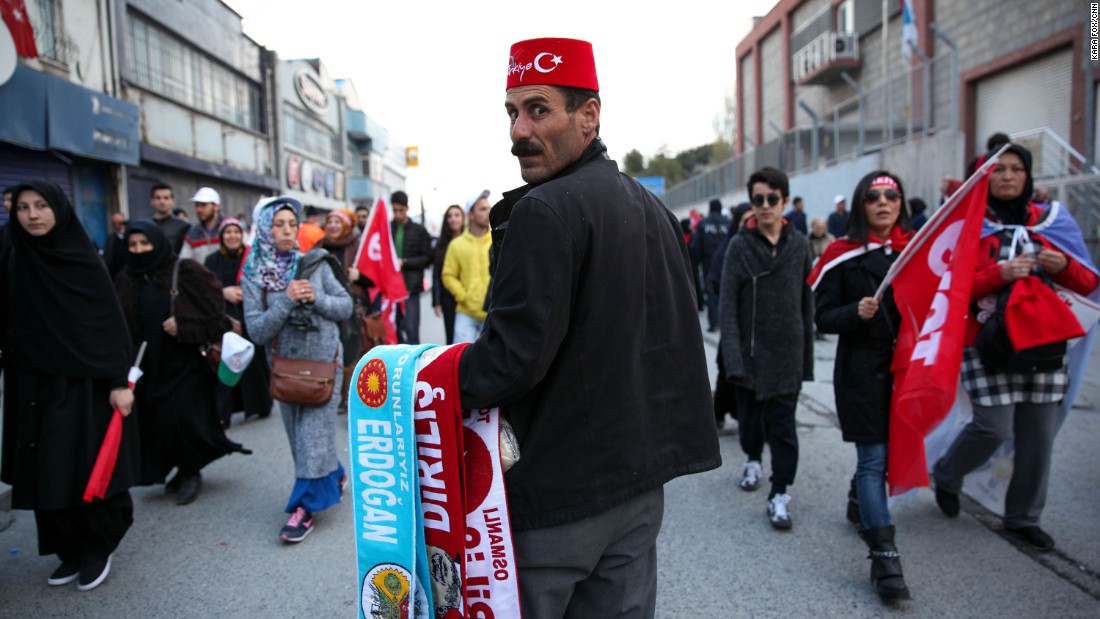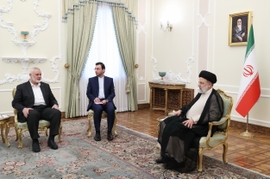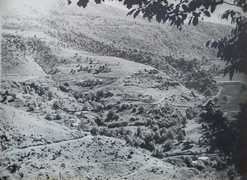Turkey’s citizens are set to cast ballots in the country on Sunday, voting in a referendum that would add 18 amendments to the country’s nearly 35-year old constitution and overhaul its governing system. A simple majority, or 51 percent of the vote, is needed to usher in what some argue will be the most drastic reform to Turkey’s constitution since the founding of the modern state in 1923.
“This is not a general election, we’re holding a referendum. Turkey will decide its future in this voting. And then we will change the Constitution and the government system,” Turkey’s Prime Minister Binali Yildirim told local TGRT TV channel on Wednesday, confident that the referendum will pass.
A “yes” vote will give a green light to parliament to pass all 18 amendments. The ruling AKP party, led by Turkey’s President Recep Tayyip Erdogan, introduced the proposed changes last year and then secured parliament’s approval to put them to a public vote.
Changes include expanding Turkey’s Grand Assembly, or unicameral parliament, from 550 to 600 seats, lowering the required age to become a member to 18, and abolishing the Office of the Prime Minister. The president will have the power to appoint one or more vice presidents, appoint four out of 13 judges to the highest judicial board, and sidestep military courts.
The biggest alteration, however, is to turn the country into a presidential republic, whereby the head of state and head of government is one in the same person. In this system, similar to that used in the United States, the president is the head of all executive agencies and has sole executive authority over the appointment and removal of cabinet officials.
Since its founding, the post-Ottoman, modern Turkish state has been governed under four different constitutions, passed in 1921, 1924, 1961, and the latest in 1982. The current constitution has been amended 17 times, with the last significant change in 2010. Overall, 113 of its 177 articles have been amended.
In a rally in Turkey’s northeastern Ordu region on Thursday, Erdogan campaigned for the “yes” vote, calling on the electorate “to go to ballot boxes on Sunday” and promising a stronger fight against terrorism and a stronger economy if the referendum passes. Erdogan and his supporters believe that the amendments will streamline policy implementation and bypass what they see as strenuous parliamentary processes.
Pinar Boyaci, a resident of Istanbul, believes Erdogan and his AKP party is doing the right thing for the country with the proposed reforms.
“Some decisions in this country need to be made quickly and with faster approval. The current government lags and approving a decision takes too long. We need an operational, swift leadership,” Boyaci told Caspian News, adding she plans on voting “evet,” or yes, on Sunday’s ballot.
But not all Turk’s agree. Critics argue that a stronger presidency will lead to a dictatorship, fearing that the reforms will give carte blanche to the president, and therefor benefit Erdogan the most. Per the 1982 constitution Erdogan, who was first elected president in 2014, can run for a second five-year term in 2019 and serve until 2024. Under the proposed changes, however, he could have his term limit clock reset and stay in power through 2029.
Özlem Tiryaki, a resident of the Aegean coastal city of İzmir, said if the referendum passes Turkey will slide into a majoritarian authoritarian “one man system.”
“Our country doesn’t need this system. Instead, our leaders should apply the semi-presidential parliamentary system with dual executives that would check and protect the republic,” Tiryaki told Caspian News. “A presidential system will not integrate well into our country, and will badly harm democracy,” she added.
Opposition parties, like the Republican People’s Party (CHP) and the pro-Kurdish People’s Democratic Party (HDP), say that what Turks are risking is nothing short of democide, or voting to abolish democracy itself. Both parties have orchestrated anti-referendum campaigns throughout Turkey, urging voters to check “no” on Sunday’s ballot.
CHP is the torchbearer for the “no” campaign whose slogan is, “No, for my future.” For the party a “no” vote represents support for a parliamentary republic and what it sees as true independence and democracy. HDP, which has been accused by Erdogan of support for Turkish separatism and links with the PKK – designated by the US and the European Union as a terrorist organization – has also staged rallies across the country.
But some regional experts do not agree with the opposition. Elkhan Shahinoglu, head of the Atlas Research Center in Baku, explained that coalition governments – often a result of parliamentary systems throughout the world – have failed since the 1990s to solve problems like economic crises and separatist wars with Kurds in Turkey’s eastern provinces.
“The ruling AKP and Erdogan needed to change the government system in Turkey. They believe the parliamentary system fails to rule the country and solve problems effectively,” Shahinoglu told Caspian News.
In a January 2017 report the UK’s Financial Times predicted an impending economic decline in Turkey, claiming the country has “gone from investor darling, to crisis candidate” in just a few years.
According to data compiled by the World Bank, Turkey turned a corner near the turn of the millennium. Macroeconomic performance and fiscal stability were high, and employment and salary rates increased, essentially making the country an upper-middle income country. Turkey urbanized dramatically, greatly expanded public services, opened up to foreign trade and brought laws into line with European Union standards. It also did a good job at recovering from the global economic crisis of 2008-09.
By 2012, however, developments occurred that raised concerns about Turkey’s capacity to sustain progress. Economic growth slowed, income per capita stagnated, and unemployment was once again on the rise. Slow growth in Europe and a deteriorating geopolitical situation in the region negatively impacted exports and investment. The influx of 3 million Syrian refugees in 2015–16 created new social, economic, and political demands, particularly in urban centers where most refugees are living.
The economy is not Ankara’s only headache these days. Dealing with outcomes from a July 2016 military coup, ongoing military operations against Islamic State in neighboring Syria and Iraq, intervening in Europe's migrant crisis, and soured relations with Moscow and Washington have all added to the government’s woes.
Two straw polls held in Turkey on Thursday showed the “yes” vote leading, albeit by a narrow margin. A poll conducted by KONDA Research and Consultancy showed “yes” was at 51.5 percent, but noted the survey had a margin of error of plus or minus 2.4 percent. Gezici Research and Polling put the “yes” vote at 51.3 percent. Two other surveys, conducted a day earlier, also showed the "yes" vote in the lead by hair, somewhere in between 51 and 52 percent.







 Azerbaijan officially unveiled the logo for the upcoming 29th session of the Conference of the Parties to the United Nations Framework Convention o...
Azerbaijan officially unveiled the logo for the upcoming 29th session of the Conference of the Parties to the United Nations Framework Convention o...
 Iran's senior military leaders described the drone and missile attack on Israel on April 14 night as “successful".
Iran's senior military leaders described the drone and missile attack on Israel on April 14 night as “successful".
 The Islamic holy month of fasting, Ramadan comes to an end this week with the celebration of a joyous festival called Eid (meaning “festival” in Ar...
The Islamic holy month of fasting, Ramadan comes to an end this week with the celebration of a joyous festival called Eid (meaning “festival” in Ar...
 Iranian Foreign Ministry Spokesperson Nasser Kanani warned of “geopolitical rivalries”, commenting on a recent high-level meeting between Armenia, ...
Iranian Foreign Ministry Spokesperson Nasser Kanani warned of “geopolitical rivalries”, commenting on a recent high-level meeting between Armenia, ...
 Iran's President Ebrahim Raisi extended condolences to the Chairman of the Political Bureau of the Palestinian Hamas group, Ismail Haniyeh, followi...
Iran's President Ebrahim Raisi extended condolences to the Chairman of the Political Bureau of the Palestinian Hamas group, Ismail Haniyeh, followi...
 The number of evacuees from flooded areas in Kazakhstan has reached 97,852 people, including about 32,856 children since March 27.
The number of evacuees from flooded areas in Kazakhstan has reached 97,852 people, including about 32,856 children since March 27.



